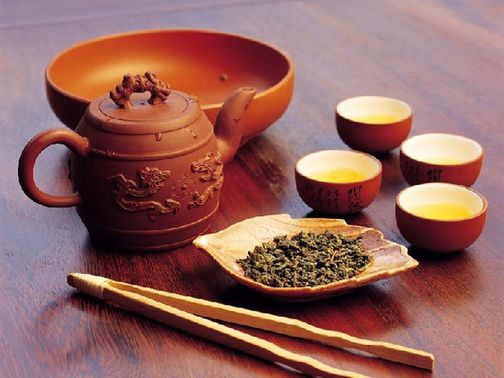Tea is no longer only a beverage. It has become a lifestyle. What kind of lifestyle all depends on where in the world you're looking to settle down for a cup.
|

|
| Tea?culture |
No matter how much of a global success the drink has become, it originates from China where the tea culture yet today is truly well preserved. Legend has it that the Chinese tried their first cup of tea already back in 3000 BC as the emperor Sheng Nung accidentally had some leaves blown into his cup of hot water.
Not until the mid 17th century did the beverage reach the ports of England, however when it finally did the hot drink had come to stay.
Today tea is an important part of culture of both in England and China. Not a day goes by without the English craving to get their afternoon tea as well as the Chinese wouldn't manage without the traditional tea houses.
The similarities between the modern tea and its surroundings in the countries differs a great deal when comparing the culture of the nations.
"In the west the companies producing tea are more focused on marketing and have a certain target group to attract and their needs to follow. In China the tea culture stretches back thousands of years. What we do is to maintain the history and traditions of it," says Ni Wen, Manager of the Men Er Tea House and Chairman of China Tea Culture Community in Hangzhou.
"Tea in China is not only a beverage. Clothing and decorations all go along with it, everything to make people comfortable and relaxed. You see, the making of tea is a very spiritual ceremony. Chinese come to tea houses to settle down and let go of their sorrows."
Ni Wen mentions that he himself never has been to England to experience its culture, but adds that he has many English friends whom he discusses the different traditions with.
"The English people also use many other flavorings to mix the taste of the tea. The Chinese however, focus on the tea itself and consider it to be an expensive delicacy if prepared in the correct way."
The way the Chinese care for the tea plant is comparable to the French for the grapes, during the making wine. Every detail is of highest importance to create the perfect drink.
England may have adapted the tea but certainly not the rest of the package. Sugar, lemon and scones are far from the fruits and nuts the Chinese could consider to eat along with the tea.
At the same time we see nationalities enjoying the same kind of drink, while adapting its surroundings to suit the people of nation. Thanks to evolution we now have two separate cultures to analyze.
If that doesn't make the world an interesting place, then what does?
(CRI April 2, 2009)